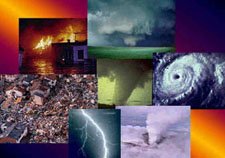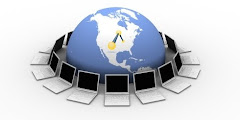Thursday, April 29, 2010
Monday, April 26, 2010
Al-Qaida in the UK
http://www.guardian.co.uk/world/interactive/2009/apr/29/alqaida2
Saturday, April 24, 2010
FINAL CALL: IAEM Health Second Annual Salary Survey
Please take two minutes to participate in the Second Annual IAEM Healthcare Survey by clicking on the link. All results will remain anonymous and the results will be available May 1st right here. Last year we had over 100 responses- please help us break that record this
year!
Click here for survey:
http://www.surveymonkey.com/s/ZR5Q8DR
Thanks for participating!
Scot Phelps, Vice Chair
Scot Phelps, JD, MPH, CEM/CBCP/MEP, Paramedic
mailto:scot.phelps%40yahoo.com
212.444.2057 (voicemail/text)
scot.phelps @ skype
Friday, April 23, 2010
Call for Presenters
October 29 – November 4, 2010
CALL FOR PRESENTERS: All presentation proposals must be submitted by April 30, 2010, 5:00 pm Eastern time
Conference website: http://www.iaem.com/
________________________________________
IAEM is now accepting abstract submissions for Pre and Post Conference Trainings and Workshops and breakout conference sessions. Multiple submissions are welcome.
To be selected it is crucial that applicants be compelling in both the importance of the subject matter and their own knowledge and experience of the subject.
New this year, you will be required to submit a sample of a work-related presentation. Any work-related topic is acceptable.
IAEM requests that breakout sessions have no more than two (2) presenters. Breakout sessions are 1-hour in length.
Pre and Post Conference Trainings and Workshops will not be limited in the number of presenters.
Selected presenters will be notified via email by late June and will include the date and time for which the presentation is scheduled.
IAEM is providing a “Speaker Guidance” to be used as a reference when developing your presentation. The “Speaker Guidance” can be downloaded at
http://www.iaem.com/events/annual/documents/SpeakerGuidance201030Mar2010.pdf
A list of suggested breakout topics is available at http://www.iaem.com/events/annual/documents/SuggestedBreakoutTopics2010.pdf
To make a submission, please click on this link:
http://submit.iaem.com/submit/SpeakerSubmit.aspx?refID=186ABV
If you have any questions or concerns, please contact IAEM Program Manager, Mary Ackleson at Ackleson@iaem.com or 703-538-1795 x 1789.
We look forward to meeting you in San Antonio!
Thursday, April 22, 2010
What is risk? Can we measure it? If we understand it, can we manage it better?
These are the fundamental questions the Understanding Risk community seeks to address and discuss in an online community forum - and we invite you to join us.
This forum is designed to bring together a diverse community of experts and practitioners to engage in an online discussion on various topics concerning innovation in disaster risk assessment.
The discussion threads generated in the online forum will determine the content of live sessions that will take place at the Understanding Risk Conference on June 1-6, 2010 at The World Bank in Washington D.C.
The Disasters Roundtable's leadership is coordinating a conference session and online discussion that is focused on:
Making Ends Meet: How can technological innovations in risk identification and risk assessment help communities be more resilient to disasters?
Background: Today, text messages, tweets, iphone apps, and facebook updates, not to mention 24-hour cable news cycles and countless other mechanisms, deliver information to people in the critical times during and after a disaster occurs. Twenty-first century technology allows for disaster-related risks to be identified, assessed, and communicated through satellites, the internet, and mobile devices. These technological innovations in risk identification and risk assessment advance the rate, quantity, and maybe even the quality of information that is transmitted and received during times of disasters. The question that this session, Making Ends Meet, poses is, "so what?"
For decades, scientists have investigated how people behave when they receive information about how they may be at risk.
Questions we want to address: Some older technologies did not trigger changes in human behavior, so how can we understand how the new, 21st-century technologies may have a different, more positive effect? The overarching questions posed for this session are whether these 21st-century technologies are or will be the game changers they promise to be and what is needed to translate these risk assessment technologies into behavior that increases the resilience of communities and reduces human suffering and loss of life during disasters. We, at the Disasters Roundtable of the National Academy of Sciences, welcome and encourage you to join us (now) in this live, online discussion and share your ideas for how to facilitate, mobilize, and implement ways to make ends meet between the 21st-century technologies for risk identification and risk assessment and the timeless desires of communities to be resilient to disasters.
To join the Disasters Roundtable's online discussion, please use one of the following links:
http://community.understandrisk.org/group/makingendsmeethowcancommunitiesuseriskassessmentre http://community.understandrisk.org/group/makingendsmeethowcancommunitiesuseriskassessmentre?xgi=2uLtyb80M7bx50&xg_source=msg_invite_group
To register for the conference "Understanding Risk" (June 1-6, 2010) at The World Bank, please use the following link: http://community.understandrisk.org/page/register-2
About the Disasters Roundtable
WHAT WE DO
The Disasters Roundtable (DR), a unit of the Division on Earth and Life Studies (DELS), works to facilitate knowledge and idea exchange through a range of activities:
WORKSHOPS
Roundtable workshops are held two or three times a year and focus on a specific topic or issue selected by Disasters Roundtable members. Workshops cover a range of specific topics, but typically come under one of six broad themes (see inset below).
LISTENING SESSIONS
The Disasters Roundtable holds periodic "Listening Sessions" with its constituents in the disasters community to ensure that the work of the Roundtable remains pertinent to the community it aims to serve.
PARTNERSHIPS AND COLLABORATIONS
The Disasters Roundtable coordinates with other groups or organizations, such as the World Bank, to host and plan events of interest to the disasters community.
Disasters Roundtable Workshops
COMMON THEMES
CLIMATE AND NATURAL HAZARDS
Workshops focus on disasters caused by extreme weather events and shifts in climate, such as hurricanes, rising sea levels and coastal erosion, flooding, and wildfires.
GEOLOGICAL HAZARDS
Workshops focus on disasters such as earthquakes and tsunamis. How can we build communities to reduce the risks posed by these geologic threats?
PUBLIC HEALTH AND BIOHAZARDS
Workshops focus on risk and planning for pandemics or other public health related disasters.
PLANNING AND PREPAREDNESS
Workshops focus on pre-disaster phases and activites. How can communities, states, and the nation develop effective methods of mitigating disaster impacts and responding quickly when disasters occur?
RESILIENCE AND RECOVERY
Workshops focus on recovering and learning from disasters. How can we rebuild and develop resilient communities to better weather the next disaster event?
SOCIAL ASPECTS OF DISASTERS MANAGEMENT
Workshops focus on research and strategies for community level disasters management.
Past workshop summaries may be found online at: http://dels.nas.edu/dr/reports.php
Contact the Disasters Roundtable:
500 5th Street NW, Washington, DC 20001
Phone: 202-334-3812
Email: dr@nas.edu
www.nas.edu/disasters
Wednesday, April 21, 2010
PhilaU Connect - May 12, 2010, 8:00 p.m. (Eastern Time)

Will be presenting
Understanding the term and reality of Public Health Emergency Preparedness
May 12, 2010, 8:00 p.m. (Eastern Time)
The PhilaU Connect Professional International Presentations is proud to announce our guest speaker, Raphael M. Barishansky, MPH, EMT-B who is currently the Chief of Public Health Emergency Preparedness for the Prince George’s County (MD) Health Department. In that capacity he is responsible for carrying out the agency’s mission to prepare the Health Department for response to emergencies and disasters of all kinds (natural and man-made), develop and implement emergency plans specific to large-scale health emergencies, as well as coordinate with other emergency services agencies.
Mr. Barishansky joined the Prince George’s County Health Department after serving as Executive Director of the Hudson Valley Regional EMS Council, based in Newburgh, NY. In that role he established policies and procedures for the development of EMS System infrastructure in the Hudson Valley; oversaw and coordinated programs and services for a six-county regional EMS System and coordinated regional ambulance assets for deployment to local, state and federal disaster assignments as needed.
Mr. Barishansky has served as adjunct faculty at New York Medical College, Yeshiva University and Westchester Community College and has been a Guest Lecturer at the George Washington University. Additionally, Mr. Barishansky has written and lectured extensively on many facets of Emergency Medical Services and Public Health Emergency Preparedness.
Mr. Barishansky holds a Bachelor of Arts from Touro College and a Master of Public Health Degree from New York Medical College. He is also a graduate of the “Senior Executives in State and Local Government” program held at the John F. Kennedy School of Government at Harvard University and the “Healthcare Leadership and Administrative Decision Making” class held at the Center for Domestic Preparedness in Anniston, AL.
Description of Presentation:
During a public health emergency, such as the recent H1N1 pandemic, your local, county or even state health department is "in charge." As most EMS agencies will be required to take on expanded roles during such events - including EMS providers to act as vaccinators and the modification of patient transportation destination protocols - understanding how your health department works will be paramount if you are going to be working as a team. Attend this informative presentation to learn what public health emergency preparedness is, how health departments utilize ICS, and what the federal/state and local roles are during such events.
Instructions outlining how to join the PhilaU Connect will be sent via email prior to the event. Questions or to register, please contact Annette Solarski at solarskia@philau.edu.
Tuesday, April 13, 2010
Thanks for the "free training" update
I just got back from 6 days of training with NDMS at the CDP. I can not say enough good things about it
This web address is worth saving,browsing and sharing
http://cdp.dhs.gov/index.html
If you are a state or local emergency responder, this training is completely funded by DHS at no cost to you or your jurisdiction. We fly you into Atlanta airport, pick you up, transport you to the CDP, and provide all meals and lodging.
Daryl
Friday, April 9, 2010
Second Annual IAEM Healthcare Salary Survey
year!
Click here for survey: http://www.surveymonkey.com/s/ZR5Q8DR
Thanks for participating!
Scot Phelps, Vice Chair

